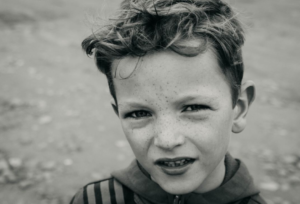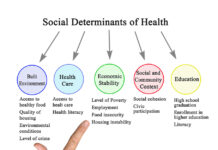From Psychologists for Social Change: “Professionals tend to talk about families’ problems in terms of the chances of something bad happening to them. We, as a profession, talk a lot about ‘risk’. In contrast, other important factors in families’ lives, such as poverty and inadequate housing, are largely absent from our discussions. The material and psychological impact of these factors are not acknowledged when we consider the barriers to the family having a happy or healthy life. This is a pattern that I recognised from my work in mental health services.
The result of formulating problems in this way is that any change or improvement is expected to come from individual members of the family. Help offered to parents is about improving their skills (through parenting classes), or their relationship with their children (through therapy). While both have a place, neither attempt to change aspects of family life at a more basic, social level. Examples of alternatives would be increasing parents’ access to financial resources (support in claiming benefits), or at a community level through access to community resources, peer-support or safe and consistent housing.
…
In practice, this culture of parent blame and child rescue can present itself in the attitudes of people working in family services. Parents are labelled as ‘uncommitted’ when they are unable to attend appointments due to travel costs. Parents become fearful of asking for help, aware that they will be labelled ‘high risk’ or ‘neglectful’. This is also something psychologists are guilty of, said Dr Christina Trigeorgis, clinical psychologist and PSC member. She reiterated the importance of acknowledging social context in formal reports and ensuring that parental or familial ‘need’ is not constructed as ‘risk’. Dr Trigeorgis warned of de-contextualizing people’s lives when drawing only from Western, individualised theories of psychology and said that even therapists who work with the relationships between people, groups and organisations can inadvertently narrow their lens to the family level, and fail to consider the wider social and political factors shaping the child or family.”















